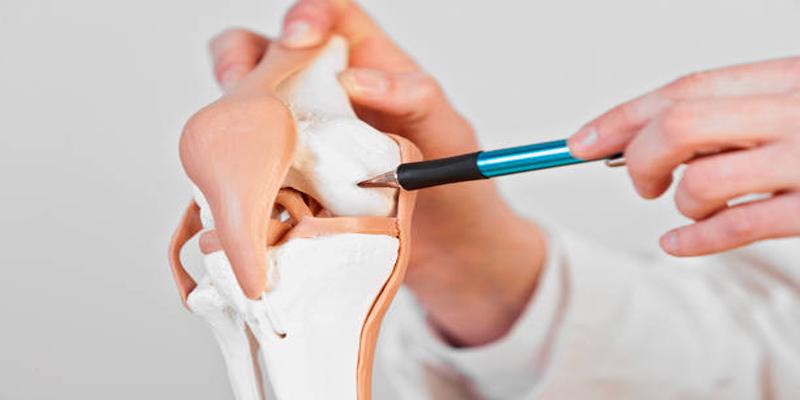Surgery vs. Non-Surgical Approaches for Degenerative Meniscus
Aug 09, 2024 By Nancy Miller
Degenerative meniscus injuries, particularly prevalent among older adults, often cause significant joint pain and mobility issues. Unlike acute injuries, these conditions arise gradually due to wear and tear on the meniscus, the cartilaginous structure that cushions the knee joint. When faced with such injuries, patients frequently encounter a difficult decision: opting for surgical intervention or pursuing non-surgical methods of treatment. Surgical approaches, which may include meniscectomy or meniscus repair, can provide quick relief but often involve longer recovery times and potential complications. Conversely, non-surgical options, such as physical therapy, injections, and regenerative medicine, may offer effective symptom management with fewer risks. This document aims to explore both treatment modalities in detail, assessing their benefits and drawbacks to guide patients towards informed decisions based on their unique circumstances.
What is degenerative meniscus?

Before delving into the treatment options for degenerative meniscus injuries, it is essential to understand what this condition entails. The term "degenerative" refers to a gradual breakdown of tissue over time, and in this case, it refers to the cartilage within the knee joint. The menisci are two crescent-shaped pieces of cartilage that sit between the thighbone (femur) and shinbone (tibia). These structures act as shock absorbers, providing cushioning and stability to the knee during movement. However, with age and repetitive stress, these tissues can wear down, causing pain and discomfort.
Degenerative meniscus injuries often occur due to overuse, obesity, or prior knee injuries. As we age, our menisci become more prone to degeneration as they lose water content and their ability to repair themselves decreases. This process can lead to a range of symptoms such as pain, swelling, stiffness, and limited mobility.
Surgical Approaches for Degenerative Meniscus
Surgical intervention for degenerative meniscus injuries typically involves either removing the damaged portion of the meniscus (meniscectomy) or repairing it through stitching or other techniques. These procedures aim to alleviate pain by removing the source of irritation within the joint or restoring stability and function.
Meniscectomy
Meniscectomy is the most common surgical treatment for degenerative meniscus injuries. It involves removing all or part of the damaged meniscus. This procedure can provide immediate pain relief, but it also means losing some of the cushioning and shock-absorbing abilities of the meniscus. As a result, patients may experience increased wear and tear on their knee joint in the future.
Recovery process and outcomes
The recovery process for a meniscectomy typically involves physical therapy and rehabilitation exercises to regain strength and flexibility in the knee. In most cases, patients can return to their regular activities within six weeks, but it may take up to three months for complete recovery.
While a meniscectomy may provide quick pain relief, it does not address the underlying cause of the injury and may increase the risk of developing osteoarthritis in the affected knee joint.
Meniscus Repair
In some cases, surgical repair of the damaged meniscus may be possible. This approach aims to preserve as much of the meniscus as possible while addressing any tears or damage that has occurred. The procedure involves stitching the meniscus together or using other techniques to promote healing.
Recovery process and outcomes
The recovery process for a meniscus repair is longer compared to a meniscectomy, as the repaired tissue needs time to heal. Physical therapy and rehabilitation exercises are also necessary, but patients may need to limit weight-bearing activities for several weeks. The success rate for meniscal repair surgery varies depending on factors such as the location and severity of the injury. However, it has been found to have better long-term outcomes in terms of preserving knee function and reducing the risk of developing osteoarthritis.
Other Surgical Options
In some cases, more extensive surgical interventions may be necessary for severe or complex degenerative meniscus injuries. These procedures may include partial or total meniscectomy, meniscal allograft transplantation, and partial or total knee replacement.
Recovery process and outcomes
The recovery process and outcomes for these procedures vary greatly depending on the specific surgery performed. However, they generally involve longer recovery times compared to a meniscectomy or repair and may require lifestyle changes to manage pain and maintain joint health.
Non-Surgical Approaches for Degenerative Meniscus

Non-surgical options focus on managing symptoms rather than addressing the underlying cause of the injury. While they may not provide a permanent solution, they can offer effective symptom relief with fewer risks and shorter recovery times.
Physical Therapy
Physical therapy aims to improve strength, flexibility, and range of motion in the affected knee joint through targeted exercises. This approach can help reduce pain and improve function for individuals with degenerative meniscus injuries. Physical therapists may also use other techniques such as ultrasound or electrical stimulation to aid in the healing process.
Recovery process and outcomes
The recovery process for physical therapy varies depending on the individual's specific condition and needs. However, it typically involves regular sessions over a few weeks or months until symptoms improve. The long-term benefits of physical therapy include improved joint health, reduced pain, and increased mobility.
Anti-Inflammatory Medications
Non-steroidal anti-inflammatory drugs (NSAIDs) can be effective in managing pain and inflammation associated with degenerative meniscus injuries. These medications work by reducing the production of prostaglandins, which contribute to pain and swelling.
Recovery process and outcomes
The use of NSAIDs for symptom management should always be monitored by a healthcare professional as they can have side effects such as stomach irritation or increased risk of bleeding. They may also interact with other medications, so it is essential to discuss all current medications with your doctor before starting any new treatment.
Alternative Therapies
Some individuals may find relief from their symptoms through alternative therapies such as acupuncture, massage therapy, or herbal supplements. While there is limited scientific evidence to support these approaches for degenerative meniscus injuries, they may be worth considering as part of a holistic treatment plan.
Recovery process and outcomes
The recovery process and outcomes for alternative therapies vary greatly depending on the individual's response and the specific techniques used. It is important to discuss these options with a healthcare professional before incorporating them into your treatment plan.
Conclusion
Degenerative meniscus injuries can significantly impact an individual's quality of life, but proper diagnosis and treatment can alleviate pain and improve function. Surgical interventions such as meniscectomy and repair may be necessary in some cases, but non-surgical options such as physical therapy and medication can also provide effective relief. It is essential to work with a healthcare professional to determine the best treatment approach for your specific condition and needs.

Discovering the Nutritional Perks of Tapioca

Sodium Bicarbonate vs Table Salt: Unveiling the Contrasts Between them

Assessing the Benefits of a High-Protein Diet

Transforming Child Nutrition: Free Training Opportunities for Early Childhood Providers

Get Started: Initiating an Exercise Program with Extra Weight - Tips for Success

Exploring the Multifaceted Benefits of Avocado Oil


